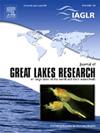投资五大湖科学对安全与繁荣至关重要
IF 2.5
3区 环境科学与生态学
Q3 ENVIRONMENTAL SCIENCES
引用次数: 0
摘要
科学研究在保障数千万在劳伦森五大湖生活、工作和娱乐的人们的安全和繁荣方面发挥着至关重要的作用。美国联邦基金、项目和机构的削减威胁着这项研究事业。作为五大湖合作研究所的科学家和合作者,我们在人类健康和安全、经济繁荣以及社会应对当今和未来重大挑战的能力方面,为五大湖研究的价值提出了理由。五大湖科学研究的成功记录表明,它通过保护和恢复生态系统、支持人类福祉和刺激蓬勃发展的经济,提供了投资回报。如果没有这种持续的投资,五大湖和依赖它们的国家的未来将处于危险之中。本文章由计算机程序翻译,如有差异,请以英文原文为准。
Investing in Great Lakes Science is critical for safety and prosperity
Scientific research plays a crucial role in supporting the safety and prosperity of tens of millions of people who live, work, and recreate in the Laurentian Great Lakes. Cuts to US federal funding, programs, and agencies threaten this research enterprise. As scientists and collaborators at the Cooperative Institute for Great Lakes Research, we make the case for the value of Great Lakes research in terms of human health and safety, economic prosperity, and society’s capacity to confront major challenges today and in the future. The successful track record of scientific research in the Great Lakes shows that it provides return on investment by protecting and restoring the ecosystem, supporting human well-being, and stimulating a thriving economy. Without this continued investment, the future of the Great Lakes and those depending on them is in peril.
求助全文
通过发布文献求助,成功后即可免费获取论文全文。
去求助
来源期刊

Journal of Great Lakes Research
生物-海洋与淡水生物学
CiteScore
5.10
自引率
13.60%
发文量
178
审稿时长
6 months
期刊介绍:
Published six times per year, the Journal of Great Lakes Research is multidisciplinary in its coverage, publishing manuscripts on a wide range of theoretical and applied topics in the natural science fields of biology, chemistry, physics, geology, as well as social sciences of the large lakes of the world and their watersheds. Large lakes generally are considered as those lakes which have a mean surface area of >500 km2 (see Herdendorf, C.E. 1982. Large lakes of the world. J. Great Lakes Res. 8:379-412, for examples), although smaller lakes may be considered, especially if they are very deep. We also welcome contributions on saline lakes and research on estuarine waters where the results have application to large lakes.
 求助内容:
求助内容: 应助结果提醒方式:
应助结果提醒方式:


